Prospects
The Master’s program “Sociology – European Societies” aims at qualifying students for positions in academic and scientific professions. It equips graduates for work within academic and political fields, for example, for positions in social science and research centers, international and particularly European organizations, NGOs and governmental institutions. Additionally, the program enables graduates to teach at universities and other higher education institutions.
After the completion of the Master’s program, Berlin offers a variety of interesting possibilities for doctoral studies. In particular there are several graduate schools in the field of social and political science (scroll down for a list).
Accordingly, some of our graduates started as Ph.D. students at institutions like the London School of Economics and Political Science (LSE) or the Berlin Graduate School of Social Science (BGSS) at Humboldt Universität zu Berlin. Others work in research projects at the Leuphana Universität Lüneburg, the University of Applied Sciences Berlin (HTW) or in private corporations, for example SEnerCon GmbH. Here some of our alumni talk about their experiences with the Master's program and give an insight into their current positions.
At the end of the document, you will find some advices on how to make a PhD (in Germany).
Berlin Graduate School of Social Sciences (BGSS)
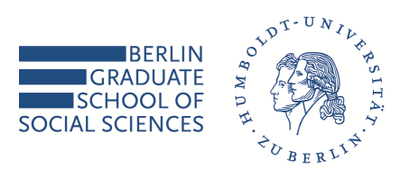
The BGSS serves as the platform for international graduate training at Humboldt-Universität zu Berlin’s Department of Social Sciences. The graduate school´s mission is to train and promote doctoral researchers from Germany and abroad/the world for both scientific and professional careers. Doctoral researchers who participate in the training structure of the BGSS International Doctoral Program complete their doctoral degrees in either Sociology or Political Sciences. The degree is awarded by the Faculty of Arts and Humanities III of Humboldt-Universität zu Berlin. Since 2007 the BGSS is funded by the Excellence Initiative of the German Federal and State Governments via the German Research Association.
Berlin Graduate School for Transnational Studies (BTS)

The Berlin Graduate School for Transnational Studies (BTS) is a joint endeavour of the Freie Universität Berlin, the Hertie School of Governance, and the Social Science Research Center Berlin. It offers a rigorous and dynamic English-language PhD programme for exceptionally-talented graduate students in the field of transnational and international relations, defined as an interdisciplinary field of research encompassing political science, history, economics, law and related disciplines.
DIW Berlin Graduate Center

The DIW Graduate Center offers a 4-year program of in-depth training in economics and policy consultancy leading to a PhD from one of Berlin's universities. It follows a dual training approach. During the first year a high-level coursework curriculum is provided, following on-the-job training in DIW Berlin research projects during years 2 to 4. Students' financing is ensured via scholarships and research positions.
The European PhD in Socio-Economic and Statistical Studies

The European PhD in Socio-Economic and Statistical Studies is an international, interdisciplinary graduate programme in which nine partner universities are cooperating. After the completion of the programme the doctoral degree Doctor Europaeus is awarded.
European Doctoral Programme in the Social Sciences (EDP III)
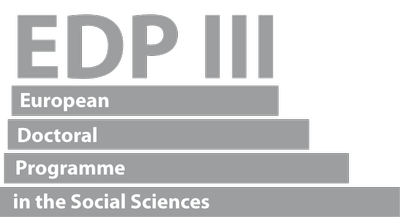
EDP III is a joint doctorate run by the Berlin Graduate School of Social Sciences, the Istituto Italiano di Scienze Umane in Florence and the Central European University in Budapest. It explores the question of how the political, economic and cultural construction of "Europe" has been shaped by and has shaped its global context.
Doctoral Programme in Governance at Hertie School of Governance
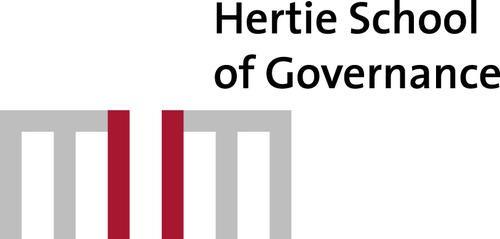
The Doctoral Programme in Governance is a three-year, English language programme with a focus on governance and public policy. The programme offers rigorous academic training in research design and familiarises students with cutting-edge theories, methods and concepts in the field of governance. The programme is targeted at PhD candidates with a strong foundation in economics, law, political science, sociology, public administration, management or related fields. It offers a stimulating academic environment for students seeking to explore modern governance in an interdisciplinary and international context.
Graduate School of Global Politics (GSGP)

As a pioneer in German-Chinese academic cooperation, the Graduate School of Global Politics (GSGP) enters a new stage of academic dialogue between the two countries. The first joint doctoral program between China and Germany in the Social Sciences invites students to pursue their PhD in a three-year program. GSGP is offered by Freie Universität Berlin (FUB) in cooperation with its four renowned Chinese partners Fudan University, Jinan University, Renmin University (RUC) and the Shanghai Academy of Social Sciences (SASS). Soon its collaboration with the Moscow State Institute of International Relations (MGIMO) will start as well.
Graduate School of North American Studies (GSNAS)

The Graduate School of North American Studies has been funded by the German Research Foundation since 2006. The School's program is dedicated to a comprehensive and interdisciplinary analysis of the social, economic and cultural changes facing North America at the beginning of the 21st century. Special attention is given to the crisis-like transformation running through American society today, apparent in both domestic and foreign policy and economic development, as well as in the media, the arts, culture, and religion. The study program has been organized into nine interdisciplinary research areas.
Doctoral Program at the Institute for Latin American Studies

The doctoral program is largely concerned with the states, cultures and societies of Latin America and gives young researchers the opportunity to complete their doctorate in an interdisciplinary and internationally oriented curriculum and research program. During the course of the program and the research process, different perspectives are brought together and expanded on with interdisciplinary and regional knowledge. The normal degree program requires six semesters. The goal of the doctoral program is to train highly qualified researchers and provide them with the necessary support for carrying out exceptional research in their chosen areas of specialization (Cultural and Social Anthropology, Gender Studies, History, Literature and Cultures of Latin American, Economics, Political Science and Sociology).
Graduate School of East Asian Studies (GEAS)
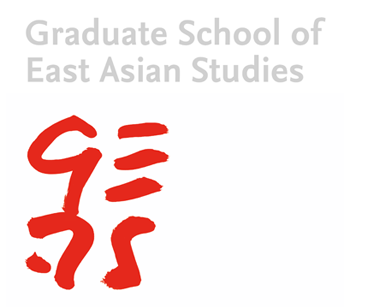
The research program of GEAS is based on the systematic and comparative study of East Asia in its wider global context. GEAS focuses on institutions: rules, norms, and practices, both those that are globally general and regionally specific. The research program aims at developing a theoretically informed and empirically grounded understanding of the origins, effects, and interdependence of institutions in East Asia, both contemporary and historical. The research approach combines regional expertise with a strong social science focus in a relevant discipline.
Berlin Graduate School Muslim Cultures and Societies (BGSMCS)
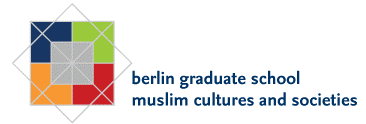
The Berlin Graduate School Muslim Cultures and Societies (BGSMCS) investigates the plurality, changeability, and global connectedness of Muslim cultures and societies. The area of study includes Muslim societies in the Middle East, Africa, and Asia, as well as Muslim communities in Europe and North America. The Graduate School examines, in a systematic and comparative way, concepts, practices, and institutions variously understood as Islamic. Special attention is given to relations between Muslims and non-Muslims, as well as forms of inter- and intra-cultural communication.
International Max Planck Research School on the Life Course (LIFE)
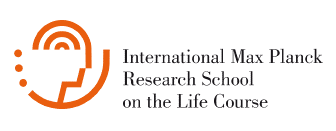
The International Max Planck Research School on the Life Course (LIFE) is a joint international PhD Program of the Max Planck Institute for Human Development, the Freie Universität Berlin, the Humboldt-Universität zu Berlin, the University of Michigan, the University of Virginia, and the University of Zurich. The goal of the Research School is the study of the systematic changes in human behavior over evolutionary and ontogenetic time. The general approach is aimed at advancing the behavioral and social science of human development. LIFE takes an integrative and interdisciplinary approach to understanding human development in a changing world, connecting evolutionary, ontogenetic, historical, and institutional perspectives. The focus is on the evolution and interaction of individual and institutional development. The curriculum combines psychology, educational science, neuroscience, and biology, focussing especially on the dynamics of human behavior on different time scales.
International Max Planck Research School for Moral Economies of Modern Societies

The International Max Planck Research School for Moral Economies of Modern Societies offers an international, English-language PhD program in History, jointly run by the Max Planck Institute for Human Development, Freie Universität Berlin, Humboldt-Universität zu Berlin, and Technische Universität Berlin. Six doctoral stipends are annually granted to applicants with outstanding academic records and a background in history or related fields such as cultural studies, anthropology, sociology, political science.
International Max Planck Research School UNCERTAINTY

The International Max Planck Research School "Adapting Behavior in a Fundamentally Uncertain World (Uncertainty School)" is a Joint international doctorate program of Max Planck Institute for Human Development (Berlin), Max Planck Institute for Research on Collective Goods (Bonn), Max Planck Institute of Economics (Jena), Friedrich-Schiller University (Jena), Indiana University (Bloomington), Hebrew University of Jerusalem, University of Trento. The goal of the Uncertainty School is to study cognitive, social, and organizational adaptations in uncertain and changing situations that involve individuals, groups, and institutions. The program combines a strong theoretical focus with practical applications. For example, theoretical models of how people make decisions in game- theoretic contexts are first developed and then applied for designing institutional responses. The Curriculum combines economics, law, and cognitive and social psychology, focusing on human behavior in uncertain and changing situations, involving individuals, groups, and institutions.
How to Make a PhD in Sociology in Germany – Some Advices
Finding a topic
At first, you have to find a topic for your thesis. Love your subject. You have to work on it for four or five years on average. Write a proposal.[1] The topic of your thesis co-decides which institutional affiliation is best for you.
Finding a supervisor
The supervisor should be an expert in the field you are working in. German professors get dozens of supervision requests every week. Therefore, you should invest some time and provide an application referring to his/her research and – if possible – make an appointment during his/her office hours. Supervising a thesis takes time. That’s why your thesis should offer a kind of additional benefit for the professor.
Finding an institutional affiliation
|
Kind of affiliation |
Description |
Pros |
Cons |
|---|---|---|---|
|
Position as a research associate at a chair – via application to job ads[2] |
It is normally 50%[3] part-time. You also have to teach one seminar and take over different tasks (being a member of commissions, e.g., writing articles). Those positions are mostly limited to 3-6 years. |
You get a good insight into the system “university” and get the chance to teach and to collect important experiences for an academic career. |
The professor is your boss and supervisor at the same time - that sometimes creates conflicts. You have to choose a topic that is close to his/her research. Some professors tend to exploit their assistants who then have no time for their thesis. Good German language skills are inevitable as bureaucratic processes still run in German. |
|
Position as a project associate – via application to job ads[4] |
It is normally 65%[5] part-time, sometimes 50%. You work in a project related to a special topic. Those positions are mostly limited to 2-3 years. |
This is the best way if your thesis topic is close to the project’s theme. |
If you are not ready to work more than 40h/week, there is less time for your thesis (35%), about 15 hours. If the topic of your thesis is different from the project’s topic, it is very hard to handle two topics simultaneously. Often the financial accounting of the project belongs to your tasks. |
|
Graduate school[6] |
A GS is a structured program you have to apply for. It normally includes a scholarship. It is sometimes dedicated to a special topic. It is very well coached and you can take a lot of courses to improve your theoretical and methodological skills. An example is Berlin Graduate School of Social Sciences (BGSS) at Humboldt University. |
This is the best way for foreigners who are not familiar with the German academic system and for students who like to get featherbedded. |
This is nothing for libertines and for those who are interested in an academic career. |
|
Individual graduation |
You apply for an admission and write your thesis on your own, visiting your supervisor only sporadically, e.g. on the way of your job or during your parental leave etc. |
You are completely independent. |
You are completely independent. |
Finding a funding for individual graduation
Information about how to get a scholarship can be found here: www.daad.de/deutschland/stipendium/en.
Normally you can only apply for a scholarship after you were accepted for a doctorate.
[1] www.findaphd.com/advice/finding/writing-phd-research-proposal.aspx
[2] e.g. www.soziologie.de/stellenmarkt/stellenangebote
[3] You earn about 1.200 Euro/month (netto).
[4] e.g. www.soziologie.de/stellenmarkt/stellenangebote
[5] You earn about 1.500 Euro/month (netto).
[6] www.soziologie.de/stellenmarkt/stellenangebote